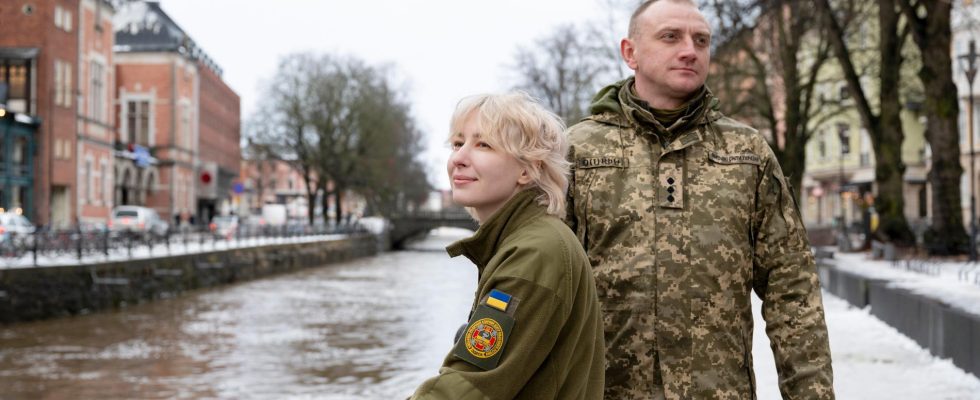unsaveSave
Doctors Valeria Osadtjuk and Jurij Motsyk have left war-torn Ukraine for a week’s recovery in Sweden.
1 / 5 Photo: Henrik Montgomery/TT
Everyday life consists of trenches, blood and amputations. But for one week, 100 Ukrainian healthcare workers get a breather in Sweden.
– I am very happy to be able to let go of thoughts about the war, says doctor Valeria Osadtjuk.
Part of Valeria Osadtyuk’s everyday life at the military hospital in Odessa is to explain to the soldiers that there is no cure – or even relief. Even if you survive a shell explosion, your hearing can be permanently damaged.
– Unfortunately, these patients have injuries that cannot be treated. I have to explain that you have to learn to live with it, says the ear, nose and throat specialist.
As a military doctor, Osadtjuk has also made a trip to a hospital near the front, where for three months she patched up the wounded as best she could. She shows mobile phone pictures of a soldier where a bullet entered via the cheekbone, and stuck in the nose.
– He didn’t notice that he had a bullet there. He was very lucky, because if it had ended up a little higher, he would have died. Now he is healthy, she says.
Suppresses emotions
The patients had shrapnel injuries, lost limbs or injuries from handguns. She and her colleagues often had to carry out amputations when tourniquets, a type of pressure bandage, were left on for too long. Osadtjuk says that she is physically not strong enough for the sawing and that instead during the procedures she had to hold the patients.
She describes it as going into tunnel vision, pushing all emotions away and trying not to think.
– You clearly feel that you have changed, that you yourself have post-traumatic stress symptoms, but you don’t have time to think about it.
For a week, she and 100 Ukrainian colleagues get a breather from the horrors of war. Through the Repower foundation, they went on a one-week rehabilitation trip to Sweden. The program includes exhibitions and museum visits and program items on dealing with mental stress.
“New to me”
Jurij Motsyk’s everyday life is an evacuation site near the front. He coordinates three teams of medical personnel who transport casualties to the point, where they are stabilized, before being sent further back for treatment. During the visit to Sweden, he found out that his group, which had been on leave, had been called back to the front.
– It feels a little sad that they are leaving without me, but I know they will manage.
He is happy to have had the chance to travel to Sweden.
– Many people burn themselves out during the war. I didn’t expect to come here. That people talk to you and ask how you are, that they care, that’s new to me after these two years, he says.
FACT Helping healthcare professionals
Repower is an aid organization that allows Ukrainian healthcare personnel to go on a recreational trip to Sweden. These include, among other things, nurses, doctors and medics in the field, who in various ways take care of injured soldiers in the war.
The program includes seminars and lectures on practical care issues and how to deal with stress, as well as visits to museums and entertainment.
The 100 who are on site in Sweden now belong to the third group trip that Repower has arranged.
Source: Repower.
Read more
